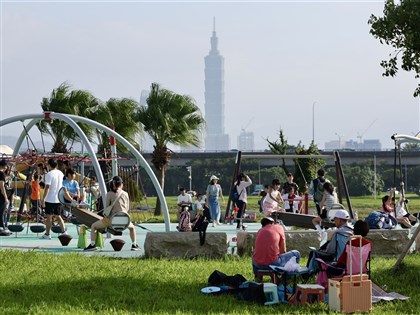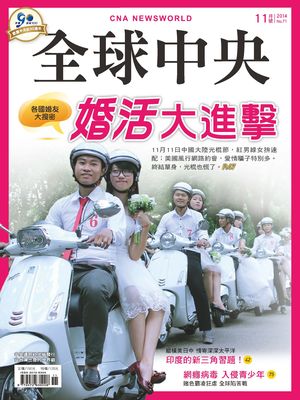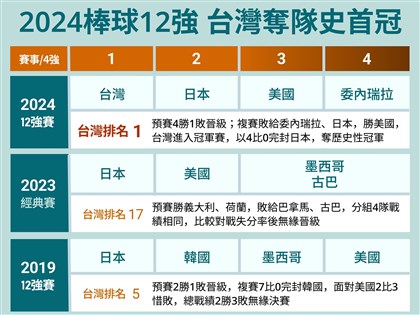蘇格蘭與英國的恩怨情仇
「英倫聚焦」單元,是由聲譽卓著的英國文化協會提供內容,獨家刊登在《全球中央》雜誌上,主題以介紹任何與英國相關的議題為主,舉凡流行文化、歷史、風俗民情都在內,搭配字彙解釋和雅思考題設計,增廣讀者見聞之餘更提升英文能力。
中譯/陳怡君(中央社編譯)
許多人想到英國時,就會自然想到英格蘭。不過9月的蘇格蘭獨立公投,卻讓這個不列顛群島的第二大組成區域備受關注。蘇格蘭在400多年前與英格蘭合併,但雙方一直有各自的身分認同。
蘇格蘭在羅伯特.布魯斯(Robert the Bruce)帶領下首次統一全境,蘇格蘭王國在中世紀初於焉成形。不過在整個中世紀,蘇格蘭和英格蘭偶而有爆發戰爭,即便是在承平時期,蘇格蘭和英格蘭戰士仍會越界突擊。
兩個王國統一的第一步是在1503年,當時英王亨利七世為尋求王位繼承合法性,將他的女兒瑪格麗特嫁給蘇格蘭國王詹姆斯四世。儘管雙方短暫發生過戰爭,聯盟仍持續維持。英格蘭女王伊麗莎白一世逝世後,蘇格蘭國王詹姆士六世繼承王位成為英格蘭王詹姆士一世,這兩個王國遂在1707年經由《聯合宣言》正式結合。
不過蘇格蘭仍在精神上維持獨立,與比它大的鄰居英格蘭時有齟齬。蘇格蘭軍隊有幾次支持英國不同派系的王位繼承人,這類對立的最後一次是1745年的詹姆斯黨人起義。不過隨著啟蒙運動興起,蘇格蘭開始在大英聯盟的脈絡下建立自身認同,而不只是一味反對聯盟。蘇格蘭首府愛丁堡,在這段時期培育出多位重要科學家與哲學家。
蘇格蘭作為英國瑰寶的原因不只是因為有愛丁堡,格拉斯哥也是卓越的工業城市。蘇格蘭為大英帝國的軍事、工程領域以及殖民事業貢獻優秀人才。儘管英格蘭人有時對待蘇格蘭人宛若次等公民,迫使民眾離鄉背井,並弱化蘇格蘭傳統的蓋爾語,不過隨著蘇格蘭在英國國會的議員席次增加,政治影響力也不可同日而語。
隨著雙方愈走愈近,英格蘭與蘇格蘭似乎更加休戚與共。蘇格蘭仍保有自身文化認同、獨特的蘇格蘭腔英語以及自己的宗教和傳統,不過1979年公投顯示只有少數人希望獨立。這種情況自1980年代開始轉變,蘇格蘭人民認為西敏寺政府沒有回應已非工業化蘇格蘭的需求。
蘇格蘭民族黨在2007年以前已掌控新成立的蘇格蘭議會多數席次,而獨立公投是其重要政治目標,他們在2011年便規劃要在2014年舉行獨立公投。
在這場歷史性公投舉行前的幾個月,雙方陣營為宣傳各自的理念彼此激烈較勁但不失和氣,蘇格蘭獨立與否,成為街頭巷尾的討論話題。2014年9月18日,蘇格蘭舉行公投,投票率高達85%。不過最後結果是統派以些微差距贏過獨派,55%民眾投下反對票,因此蘇格蘭會繼續留在英國──至少目前還會。(完)
更多精彩內容請見《全球中央》2014年11月號;未經同意禁止轉載。
Aye or Naw? Scotland and the United Kingdom
撰文輯考題設計 英國文化協會Jeremy Beacock
While many people think of England when they think of the United Kingdom, September’s vote on Scottish independence brought the British Isles’ second largest country into sharp focus. The two countries have been together for more than 400 years, but have always maintained their separate identities.
The Scottish kingdom proper emerged in the early middle ages, when Robert the Bruce unified the country for the first time. Throughout the middle ages, there were sporadic wars with the English, and even in peacetime, Scottish and English warriors raided across the border.
The first steps to the union were taken in 1503 when Henry Tudor, seeking legitimacy for his line, married his daughter Margaret to James the Fourth of Scotland. Despite a brief outbreak of war, the alliance held, and on the death of Elizabeth I, King James I of Scotland inherited the throne. The two kingdoms were formally united by the Declaration of Union in 1707.
But Scotland remained independent in spirit, and the relationship with its larger neighbor was often fraught. On several occasions, Scottish armies threw themselves behind different rivals for the crown, with the last of these being the Jacobite rising of 1745. However, with the dawning of the Enlightenment, Scotland began to forge its own identity in the context of, and not just in opposition to, the union. Edinburgh, the Scottish capital, provided a home to key scientists and philosophers of the period.
It was not just Edinburgh that made Scotland a valued part of the United Kingdom. Glasgow became a great industrial city, and Scots strengthened the British Empire as soldiers, engineers, and colonists. While the English sometimes still treated the Scots as second class citizens, forcing people off land and weakening the traditional Gaelic language, Scotland also became more politically influential, sending more MPs to Parliament.
As ties became closer, the two countries seemed bound to a common destiny. Scotland retained its own cultural identity, expressed in its accent, its religion, and its traditions, but a vote in 1979 showed only a minority of Scots wanted independence. This began to change in the 1980s, as people felt that the Westminster government was out of touch with the needs of a de-industrializing Scotland.
By 2007, the Scottish National Party, or SNP, had taken control of the newly devolved Sottish parliament, with a referendum on independence a key part of their political aims, and in 2011, a date was set for 2014.
The months leading up to the historic vote saw fierce but friendly campaigning on both sides. The matter was debated on every street corner, and on September 18th, 2014, Scotland went to the polls. There was an extraordinarily high turn-out, with 85% of the electorate voting, but the final result showed that a slim majority of Scots saw their future as part of the UK. With a 55% No vote, Scotland is staying in the union – at least, for now. (END)
Keywords
Aye or Naw? – 蘇格蘭發音的「Yes」跟「No」 yes or no in the Scottish accent.
sporadic (adj) – 偶發的 occasional
line (noun) – 繼承順位 a king or queen’s family and the descendants who will be rulers after him
fraught (adj) – 關係緊張的 difficult; causing worry or nervousness
the crown (n) – 王位繼承權 the right to be king or queen
the Enlightenment (noun) – 啟蒙運動 a European and American cultural movement that began in the late 17th century, arguing for the use of reason in science, philosophy and literature instead of faith and tradition.
to forge (v) – 鍛造 to make
Gaelic (n) – 蓋爾語 a language, related to Welsh, which was widely spoken in Scotland until the twentieth century
bound to a common destiny (idiom) – 休戚與共 sharing a common fate
de-industrializing (adj) – 去重工業的 losing heavy industry such as steel making or ship-building from an area
devolved (adj) – 權力下放的 a political term meaning giving more power to local regions over a central government.
referendum (n) – 公投 a public vote on an important issue
Questions
For questions 1 to 3, choose the best answers to complete the sentences.
1. Scotland and England have a long and complicated history…
2. Scotland first became a true kingdom…
3. Scotland and England formally became the United Kingdom…
A. when the Declaration of Union was signed.
B. dating back close to 500 hundred years.
C. when King James I became king of England.
D. after the Jacobite uprisings of the 18th Century.
E. when it was united by Robert the Bruce.
F. when Henry Tudor married his daughter to the King of Scotland.
For questions 4-7, complete the sentences using NO MORE THAN 2 words or a number
4. Even after the move to unification began, Scotland remained _______.
5. The __________ of 1745 was the last major conflict between Scotland and England.
6. ______________ period saw Scotland begin to accept union with the UK.
7. __________ became a major centre of production.
For questions 8-10, choose YES, NO, or NOT GIVEN. 8. The writer suggests that the independence movement has always been a strong political force in Scotland.
9. The writer believes the Scots should have voted for independence.
10. The writer feels the Scots may vote for independence in the future.
1.B; 2. E; 3. A; 4. Independent; 5. Jacobite rising; 6. The Enlightenment; 7. Glasgow 8. NO; 9. NOT GIVEN; 10. YES
本網站之文字、圖片及影音,非經授權,不得轉載、公開播送或公開傳輸及利用。























